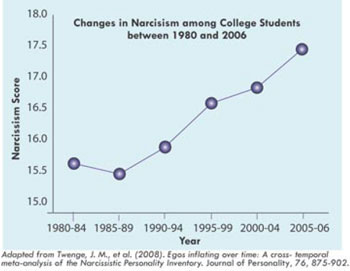 |
by Michael F. Mascolo, Ph.D.
My door is open. A student comes into my office. She walks in and says, “I’d like to drop one of my classes”. I smile, and as welcoming as I can be, I ask, “Do we know each other?”
Another student failed two courses during the previous semester. He had good reasons – a series of serious emergencies had emerged and he couldn’t complete his work. He was too ashamed to talk to his professors about his situation. I urged him to write to them. Knowing that he would likely delay the task, I invited him to email the professor while he was still in my office. He started to write: “hey. I would like to come and talk to you about…” Of course, I stopped him. I taught this student – a senior – about the importance of salutations and punctuation. I asked him to reflect upon how his professor might view his letter: “hey”, of course, is not an appropriate way to address a professor, especially when one is about to ask for a favor and so forth.
It was the first day of classes. A young man came to class. He was wearing his trousers in that popular style…the pants hanging half way down his buttocks. His glowing boxers announced themselves for all to see, as if to say, “this is my right”.
 |
Perhaps – and I don’t want to do anything to take this young man’s rights away from him. Rights are precious. |
If anyone doubts the importance of individual rights, simply take a trip to the many places in the world in which the right to individual autonomy is not respected.Ask a veteran about his or her beliefs about the importance of human rights. Alternatively, ask an African American individual who lived through the civil rights movement, or any minority individual who continues to experience the feeling of not quite being a whole person in the eyes of society.
Rights grant us the liberty to pursue our own happiness. They do this primarily by telling us what we cannot do. I have the right to pursue my own happiness, but my rights end where your nose begins (and vice-versa). So, rights put limits on our personal freedoms by telling us what we cannot do – we cannot intrude upon the rights of others. However, as a system for guiding moral conduct – telling us how we should act toward others – is simply not enough.
It is true that our notions of rights tell us that we are to treat others with respect. But all that means is that we must respect other people’s rights as we expect them to respect our rights. Rights tell us the don’ts but don’t tell us the do’s. Having the right to pursue personal happiness tells us nothing about how we should behave toward others – that we should be kind; act out of compassion; to help others in legitimate need; to persevere under hardship; to be honest and trusting, and so forth.
The Problem:
The Steady Rise of Narcissism and Self-Focus in Young People
It may seem “natural” to think of ourselves as individuals who are free to pursue our own personal happiness. However, in the absence of an equally deep sense of responsibility to (and perhaps even for) others, it is easy to create a society of the self-absorbed. In fact, we have been creating such a society for at least the past 50 years. According to psychologist Jean Twenge, over the past decades, young people have become increasingly more self-absorbed, concerned with their own desires and needs and are more focused on their own rights and concerns. These changes are unprecedented and quite real.
The figure below shows a steady increase in the narcissism and self-focus in college students over the past 25 years. These are dramatic and relatively recent changes. In the span of a generation, something has happened to alter the moral focus of young people.
The people who founded our nation knew that individual rights alone could not provide the glue to hold society together. At the time of the founding of our nation, religion and shared community standards were an important part of everyday life. Religion, for example, provided the necessary corrective that protected society against the excess of freedom (sometimes called “license”).
The founding fathers were smart. One of the main reasons that they sought freedom from Britain was to secure religious freedom. Without religious freedom, it would be easy for a government to simply mandate laws based on religious beliefs. By mandating a separation between church and state, the law made sure that no religion could mandate the “do’s” of society – that would be a matter of personal choice. The voluntary participation in religion provided the “do’s” of social life – “be kind,” “treat others as you would want to be treated”, “visit the sick”; “care for the poor” and so forth.
Because most people voluntarily held to some form of religion and moral beliefs, personal freedom was tempered by more-or-less shared adherence to systems of community standards. It is very likely that the rise of narcissism in young people has very much to do with the increased focus on personal rights over responsibilities, obligations and even duties to others. It reflects a steadily increasing concern for the self over the importance of caring for others. The trend toward narcissism is, in large part, the result of the tearing asunder of morality and personal identity. Instead of defining the self in terms of a personal commitment to some sort of moral purpose, young people have increasingly defined themselves in terms of personal interests that are separate and distinct from concepts of goodness, conscience, virtue, community or moral purpose.
It’s time to reverse this trend.


















